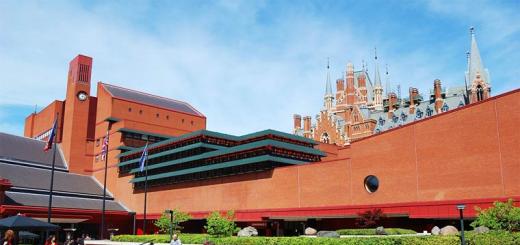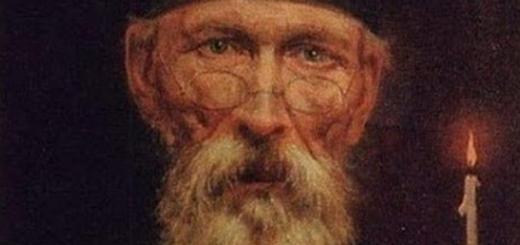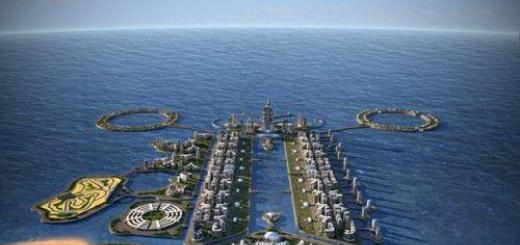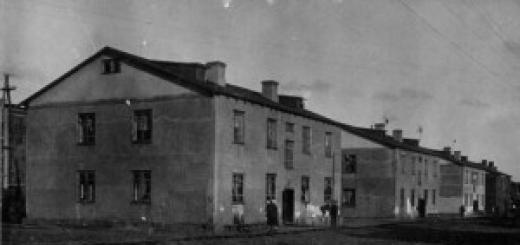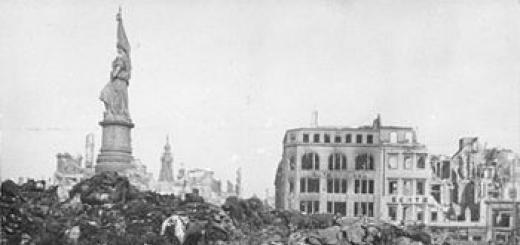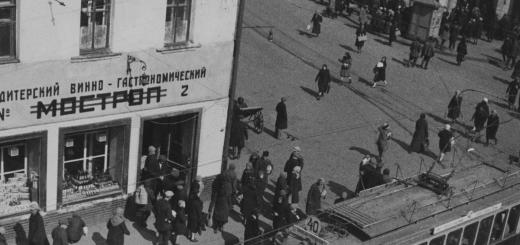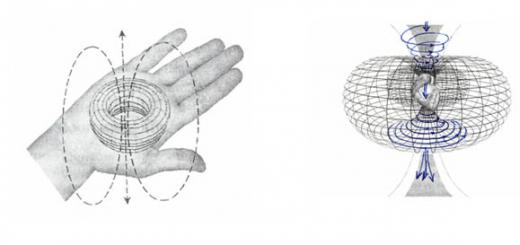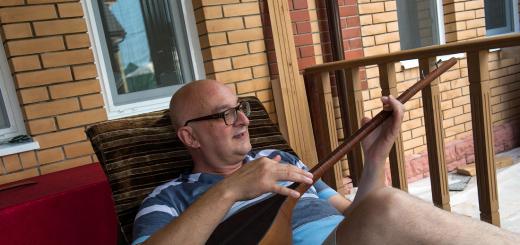Charlemagne, son of King Pepin the Short of the Franks, was born in 742. The father early began to accustom his son to state affairs. In 761 and 762, he already accompanied his father on the Aquitanian campaigns. In 768, after the death of Pepin, Charles himself became king and inherited huge lands that stretched like a crescent from the Pyrenees to the borders of present-day Bohemia.
The first years, Karl did not justify his future nickname. He traveled to his numerous estates, rested, made contributions to monasteries and was entirely under the influence of his mother, the dowager queen Bertrada.
But in 772 something happened to him. He suddenly separated from his wife Desiderata and sent her to Italy to her father, King Desiderius; laid a hand on the inheritance of his brother Carloman, who died in 771 (who owned more than half of present-day France) and became the sole king of the Franks.
The road to conquest was open to him. From that moment in the chronicle of the reign of Charlemagne there were no more than two or three peaceful years. The rest of the time - invasions, campaigns, sieges.
Charlemagne was one of those commanders who understood that without a well-placed intelligence there is neither an army nor victory. Therefore, he owes his success in all his wars to small or large intelligence operations that preceded or accompanied them.
Did Charles have any far-reaching plan for wars of conquest? Hard to say. Every autumn the army disbanded, and in the spring it was recruited again. But reconnaissance was carried out constantly.
In 786, Charles's agents reported that his ally, the Bavarian Duke Tassilon, having colluded with the enemies of Charles in southern Italy, weaves intrigues and secretly agrees on joint actions with the nomadic Avars.
Busy with other things, Karl for the time being pretends that he does not know anything. But his envoys "process" the vassals of the treacherous duke. In 787 Charles "remembers" Tassilon and demands from him an immediate personal appearance. Thassilon dodges. Then the king, knowing that the vassals of Tassilon are opposed to him (Karl), surrounds Bavaria with troops. Most of Thassilon's vassals immediately take the side of the Frankish king.
Realizing the hopelessness of his situation, Tassilon comes to Charles and takes an oath of allegiance. However, the following year, Charles summons him to the General Diet. Accused by his own vassals, Thassilon admits that he led continuous intrigues against Charles, conspired about joint actions with the enemies of the Frankish state, was not going to fulfill his oaths and secretly prepared to kill all the supporters of Charles in his country. The Franks unanimously sentenced Thassilon to death. But Charles showed mercy and replaced the execution with the exile of Thassilon, his wife and children to a monastery. So, one might say, without shedding blood, Charles conquered Bavaria.
But not always his victims got off so easily. One of the pagan tribes that were at enmity with Karl and caused him a lot of trouble were the Avars - warlike nomads, pagans and robbers, with whom the Duke of Tassilon concluded a secret alliance on the eve of his fall. In their conspiracy against the Franks, the Avars united with their enemies - the Lombards, Saxons and Bavarians.
The attack on the Franks was scheduled for the same year, 788, when Thassilon was condemned. Apparently, the Avars did not know about this either and, hoping for the support of the duke, invaded the Frankish state, as planned.
Thus began this terrible and merciless war, which lasted seven years. By 795, the Franks defeated the Avars and "fire and sword" walked through their land, destroying everything and everyone. When bishops and priests were sent to baptize the conquered people, it turned out that there was no one to baptize - the people were exterminated, not a single inhabitant remained alive. It was no coincidence that the Old Russian proverb said: "They died like obre", that is, "They died like obras (Avars)".
Now about the elephant of Haroun al-Rashid. The legend tells that one day Charles, seeing the tusk of an elephant, desired to see a living elephant. And this is supposed to explain the subsequent events. But most likely the elephant was just a pretext.
In 797, Charles sent an embassy to the caliph of Baghdad, Harun al-Rashid, which, as always, included not only diplomats, but also scouts (which, however, then meant the same thing) - the king's confidants Lanfrid and Sigmund, as well as Jew Isaac. The official purpose of the embassy was to "get and bring the elephant."
The caliph did indeed send an elephant to Charles, which Isaac, in 802, after long ordeals, brought safely to Aachen. Even earlier, the caliph had given permission to the church mission from Jerusalem to take Charles the blessing of the patriarch, as well as various relics, including the keys to Jerusalem.
Why did the representatives of Karl so interested the eastern ruler? On what basis could the Christian Aachen (the capital of Charles) and Muslim Baghdad get closer? They found common rivals and enemies. First of all, they included the future caliphs of the Spanish Cordoba, who were thinking of destroying the Baghdad Abbasids. (But it was Charles who fought with the caliphs, and this war became fierce after 800.)
Even more, Charles and Harun al-Rashid were united by the policy towards Byzantium. The fact is that Byzantium and its emperors looked upon themselves as the only legitimate heirs of Rome, Caesar and Augustus. And Charles, proclaimed emperor on December 25, 800, dealt a mortal blow to the Byzantine idea of the "unity" of the empire. It is no coincidence that at the moment when Pope Leo III, according to the current concepts of "agent of influence" of Charles, placed the imperial crown on Charles, he expressed dissatisfaction with this, wanting to show that he was not going to turn into a rival of the Byzantine emperor, but since it happened, then It is not he who is to blame, but Pope Leo III. Karl even sent a special embassy to Constantinople with proposals of "hands and hearts" to the Byzantine Empress Irene. The embassy was received favorably.
The Great Empire, uniting East and West, was on the eve of its creation. The Roman Empire would have been restored, and Charles, who at that time had achieved success in Spain, penetrated into Palestine, and had his agents in the main cities of North Africa - Carthage and Alexandria, would become the greatest of the monarchs.
But the unexpected happened. Irina was overthrown, and the Byzantine throne was taken by Emperor Nicephorus. However, the cunning move conceived by Karl still played a role. Nicephorus, misled by Charles, broke off all relations with the pope, but continued to negotiate with Charles. Still, he needed an ally, because the Muslim caliphate threatened him.
A reconnaissance and diplomatic game began, accompanied by military operations. Karl and Haroun again exchange embassies.
Realizing good relations with Baghdad, Karl increases pressure on Byzantium. At the same time, he exchanges embassies with the Jerusalem patriarch, sending his people to Palestine, sending large sums of money there, erecting churches, interfering in disputes about church dogma and trying to tear off entire regions from the spiritual influence of Byzantium.
Byzantium, squeezed from the east and west, could not resist for long, and in 812 the new Byzantine emperor Michael I formally recognized the imperial title of Charlemagne.
As for the elephant, he died in 810, and the chronicles paid more attention to this event than to the death of Charlemagne's son Pepin, King of Italy, who died at the same time.
Shortly before the death of Charlemagne, an event occurred that went down in history as a miracle. In early January 814, the word "princeps" (leader. — lat.), which was part of the imperial title. This was regarded as a terrible omen. Indeed, on January 28, 814, the king, who was not ill, suddenly died. He was buried in the same basilica.
GARUN AR-RASHID(766–809), fifth Caliph of Baghdad from the Abbasid dynasty.
Born in February 766 in Ray (near modern Tehran). Son of Caliph al-Mahdi (775–785) and al-Kayzuran, a former slave from Yemen. His teacher was Yahya ben Khalid, a representative of the noble Iranian family of the Barmekids (Barmakids). In 781, at the age of fifteen, he was put at the head of a campaign against the Byzantine Empire. In 782 he invaded Asia Minor with a huge army, defeated the Byzantine strategist Nikita and reached Chrysopolis (modern Uskudar, Turkey) on the Asian shore of the Bosphorus opposite Constantinople. This forced the regent Irina to sign a peace treaty with the condition that the Baghdad caliphate be paid an annual tribute of 70,000 gold dinars. Upon his return, he was honored with a solemn meeting, received the honorary nickname ar-Rashid (Just), was appointed governor of Tunisia, Egypt, Syria, Armenia and Azerbaijan and recognized as the second (after his brother al-Hadi) in the line of succession to the throne.
After the death of his father in 785, he supported the transfer of power to al-Hadi. However, his relations with the new caliph soon appeared to deteriorate; al-Hadi decided to appoint his son Ja'far as his successor. When al-Hadi died on September 14, 786 (there is a version that he was strangled on the orders of his mother, al-Kaizuran), Harun ar-Rashid forced Jafar to renounce his rights to the throne and took it himself.
Becoming caliph, he removed all the viziers and governors of the provinces appointed by his predecessor, replacing them with his proteges. Yahya ben Khalid became the chief vizier; important posts were also given to his sons and other members of the Barmekids clan. However, in the early years of Harun al-Rashid's reign, real power was in the hands of al-Kairuzan. After her death in 789, the political influence of the Barmekids increased sharply. In 803, the caliph massacred the Barmekids (Yahya ben Khalid was also executed); their vast wealth was confiscated.
The reign of Harun ar-Rashid fell at the time of the internal weakening of the Baghdad Caliphate. He had to constantly fight against uprisings and separatist movements. In 788, the Caliph suppressed the rebellion of Yahya, a descendant of Caliph Ali (656-661) and Fatima (daughter of the Prophet Muhammad), in Tabaristan (in Northern Iran), but could not prevent his relative Idris from establishing an independent state in Morocco (the kingdom of the Idrisids). In 788 and 794–795 he sent troops to Egypt, where mass anti-tax demonstrations took place, in 796 to Syria to pacify supporters of the Umayyad dynasty overthrown in 750. In 800, he was forced to recognize Ibrahim bin al-Aghlab as an autonomous ruler of Ifriqiya (modern Tunisia and Eastern Algeria) on the terms of paying a significant tribute (Principality of the Aghlabids). Only in 804 did he manage to cope with the anti-Abbasid movement in Yemen that had begun in 795.
He sought to strengthen the unity of the state on the basis of official Islam, relying on the clergy and the Sunni majority of the population. Carried out repressions against opposition movements in Islam (Shiites, Kharijites), pursued a policy of restricting the rights of non-Muslim groups in the Caliphate.
In foreign policy, he focused on relations with Byzantium. In the autumn of 791, the troops of Harun al-Rashid invaded its territory and forced the Byzantine emperor Constantine VI (780–797) to conclude a humiliating peace, agreeing to pay tribute to the caliphate every year. In the autumn of 797, after the overthrow of Constantine VI, he organized a campaign in Phrygia and forced Empress Irene (797–802) to confirm the obligation to pay tribute annually. The refusal of the new Byzantine emperor Nikephoros I (802-811) from this obligation provoked another surge of hostilities between the two countries: in 805 the Arabs captured the island of Cyprus, in 806 they invaded Asia Minor and took Heraclea Pontus (modern Eregli, Turkey) and Tiana (modern Kemergisar, Turkey), in 807 they captured the island of Rhodes.
Harun al-Rashid turned Baghdad into the most brilliant and at the same time intellectual capital of the East. Built for himself a magnificent palace; built schools, hospitals, libraries. Actively patronized sciences and arts. He attracted famous scientists, poets, doctors and musicians, including foreigners, to the court. He himself was fond of science, wrote poetry. Established contacts with China and the Frankish state (corresponded with Charlemagne). Introduced the mandatory use of paper, shortly before him penetrated from China, in administrative office work.
At the beginning of 809, he led troops to Central Asia to suppress the uprising of Rafi ibn Leys that broke out in Maverannahr in 806, but fell ill on the way and died on March 24, 809 in Tus (Khorasan province), where he was buried.
The figure of Haroun al-Rashid has been idealized in Arabic folklore. He became one of the heroes of "adventurous" short stories Thousand and one nights, where he appears as a kind, wise and fair sovereign, protecting ordinary people from dishonest and greedy officials and judges. In it, Harun ar-Rashid, dressed in a merchant's dress, walks accompanied by the vizier Jafar (son of Yahya ben Khalid) through the night streets of Baghdad and visits bazaars and caravanserais to learn about the true state of affairs in the country and the needs of his subjects.
Ivan Krivushin
Harun al-Rashid (Harun al-Rashid), Caliph of Baghdad
(circa 763–809)
The fifth caliph of the Arab Abbasid dynasty, Harun, nicknamed Al-Rashid (the Just), is known to the general public primarily from the tales of the Thousand and One Nights. He was distinguished by cruelty and ruthlessness towards those whom he considered his opponents or rivals. Haroun was the second son of Caliph al-Mahdi. His mother was once a slave. Already in 780, when he was not yet 20 years old, Harun was sent to command the army in the war with Byzantium. He achieved great military success, for which his father granted him the title of Al-Rashid, which literally means "one who follows the right path." Harun was appointed governor of Tunisia, Egypt, Syria, Armenia and Azerbaijan. He made his former tutor, the Persian Yahya Barmakid, his vizier and chief adviser. Harun's mother tried to persuade al-Mahdi to make Harun his heir. However, the caliph died suddenly in August 786, before he could name the one who would inherit the throne. A month later, Harun's elder brother Gadi (Hadi) also died, and the question of an heir was decided by itself. On September 14, 786, Haroun was proclaimed caliph. He was supported by both Arab and Iranian nobility. Yahya retained the position of vizier, and his sons Fadl and Jafar became advisers at the caliph's court. Harun's mother, until her death in 789, retained a great influence on her son and on the affairs of government.
For personal protection, Harun recruited a special guard from the natives of Khorasan. Many guards subsequently received appointments to high military and civil positions.
Soon after the accession of Harun, riots broke out in Egypt, Syria and Yemen. These speeches he managed to suppress relatively easily. Later, during his reign, peace reigned within the caliphate, there were no major uprisings. Suffering from insomnia, disguised Harun walked around Baghdad at night, accompanied by Jafar, who was his lover, and the executioner, who immediately carried out the sentence on the criminal if they happened to solve the crime. Harun found out in such a way that they talk about him and his close associates among the people. In 803, Ja'far fell out of favor because he cheated on Haruna with another lover. The caliph ordered the unfaithful lover to be beheaded. Several more people were executed, including Haruna's own sister, who became Jafar's wife, and her two sons. Yahya and Fadl were thrown into prison and all their property was confiscated.
In the field of domestic policy, Haroun streamlined the levying of the "mukasama" tax, introduced by his predecessor Mansour, in the form of half the harvest from each Muslim community. Under Harun, the share of the crop paid as a tax was made dependent on the area and fertility of the land. A large share was levied from large areas and better irrigated and fertile plots.
Golden dinar of Haroun Al&Rashida. 8th century
On the whole, during the reign of Harun, the military-despotic system of governing the caliphate finally took shape. The caliph was the supreme commander of the troops and the ruler of all the faithful. For the affairs of civil government, he appointed a vizier, the first minister, responsible only to him. The vizier oversaw the administration, finances, he could be entrusted with the command of the troops. At the same time, Harun himself carefully supervised the vizier and, as we see, he could easily remove an objectionable dignitary.
Harun sought an alliance with Emperor Charlemagne and, in response to Charles's embassy in Baghdad, sent a numerous embassy to his capital Aachen with a truly huge gift - a white elephant. However, it was not possible to agree on joint actions against Byzantium and the Emirate of Cordoba, which broke away from the caliphate, with which Charles fought.
But Harun continued to successfully fight with Byzantium alone, and in the fall of 808 he led a campaign in Iran, which rebelled against the power of the caliph. On the campaign, he became seriously ill, and it became clear that the days of the caliph were numbered. Shortly before the death of Haruna, they brought the captured brother of the leader of the rebels. According to legend, the last words of Harun were: “If I had only enough breath for two words, I would have said: “Execute him!”” The captive was killed before the eyelids of the caliph closed forever.
Under Haroun al-Rashid, Baghdad flourished as the capital of the Caliphate. Its population has reached 2 million people. Baghdad was called "the capital of Islam, the eye of Iraq and the throne of the caliph, the center of beauty." Trade, crafts, science, far ahead of contemporary European science, and art developed here.
This text is an introductory piece.9. In and around the bathhouse The bathhouse was the crowning achievement of today's itinerary. In the morning, leaving, Anton said to his grandfather, wanting to cheer him up: - Take a basin? In Anton's time, they went to the bathhouse not only with their brooms. Anton's father, a respected man in the city, a teacher, a well-known lecturer of the Knowledge Society,
Rashid + Olya The wind sings to us and calls us to the mountains, Evening makes me laugh with sweet wine. If the sky has become a fence for us, I will write on it: "Olya + Rashid." And in the registration book, a Cockroach with ink on his mustache could sign. One hundred percent marriage is allowed in the registry offices, But love is made on
MISHKA KHALIF I remember very well the roofer Mishka Khalifa, who lived in our house. His life deserves to be written in legal textbooks. Mishka had a seasonal job, three or four months. The house managers hired him every summer, but they had nothing to pay and get
Chapter 6 Sultan Suleiman Khan Khazretleri - Caliph of Muslims and Ruler of the Planet
Rashid Nugmanov “A genuine feeling magnetizes…” - … Frankly speaking, I am not a mystical-minded person at all, so at first I did not attach any importance to the dream that I had in the morning of August 15, 1990. I woke up then about nine o'clock and remembered him
Psychiatry and beyond Once, while in Moscow, Lyudmila Andreevna Chistovich decided to introduce me to one of her old friends. According to her, it was strange to deal with such similar problems, to live in the same city and at the same time not know each other. It was about Joseph.
Cyrus II the Great (Kurush) (c. 590 - c. 529 BC) The future founder of the Persian Achaemenid Empire was born around 590 BC. e. (suggested dates vary from 600 to 585) in Media or Persia. The initial period of his biography is covered with the darkness of obscurity.
About Paustovsky At the beginning of this book, dear reader, the steps on the ladder of my life were very steep, and it was necessary for me to take hold of the railing of chronology. But now that I have quite frankly introduced you to the highlands of your life, you can
On and around the skating rink The skating rink is a table on the goats, on which tailors sit and sew with their legs tucked under them. With their sedentary trade, tailors are great hunters for all sorts of talkers and storytellers. Different people came to sit with conversations at the rink, and most often Prov Palonych,
Preserved Youth Lev Khalif A guest from Switzerland spoke. Romances - ancient and modern, songs of famous bards, to the words of Akhmatova, Yesenin, to their own ... A small hall accommodated four dozen lovers of bard songs. Someone enthusiastically applauded, someone left
1230 years ago, on September 14, 786, Harun ar-Rashid (Garun al-Rashid), or the Just (766-809), the fifth Baghdad caliph from the Abbasid dynasty, became the ruler of the Abbasid Caliphate.
Harun turned Baghdad into a brilliant and intellectual capital of the East. He built for himself a magnificent palace, founded a large university and a library in Baghdad. The caliph built schools and hospitals, patronized the sciences and arts, encouraged music lessons, attracted scientists, poets, doctors and musicians, including foreigners, to the court. He himself was fond of science and wrote poetry. Under him, agriculture, crafts, trade and culture achieved significant development in the Caliphate. It is believed that the reign of Caliph Harun al-Rashid was marked by economic and cultural flourishing and is preserved in the memory of Muslims as the "golden age" of the Baghdad Caliphate.
As a result, the figure of Harun al-Rashid was idealized in Arabic folklore. He became one of the heroes of the Thousand and One Nights fairy tales, where he appears as a kind, wise and fair ruler who protects ordinary people from dishonest officials and judges. Pretending to be a merchant, he wandered the night streets of Baghdad so that he could communicate with ordinary people and learn about the true state of affairs in the country and the needs of his subjects.
True, already in the reign of Harun there were signs of a crisis in the caliphate: there were large anti-government uprisings in North Africa, Deylem, Syria, Central Asia and other areas. The caliph sought to strengthen the unity of the state on the basis of official Islam, relying on the clergy and the Sunni majority of the population, and carried out repressions against opposition movements in Islam and pursued a policy of restricting the rights of the non-Muslim population in the caliphate.
From the Arab Caliphate
Arab statehood originated in the Arabian Peninsula. The most developed region was Yemen. Earlier than the rest of Arabia, the development of Yemen was due to the intermediary role it played in the trade of Egypt, Palestine and Syria, and then the entire Mediterranean, with Ethiopia (Abyssinia) and India. In addition, there were two more large centers in Arabia. In the west of Arabia, Mecca was located - an important transit point on the caravan route from Yemen to Syria, which flourished due to transit trade. Another large city of Arabia was Medina (Yathrib), which was the center of an agricultural oasis, but there were also merchants and artisans. So, if by the beginning of the 7th century. most of the Arabs who lived in the central and northern regions remained nomads (Bedouins-steppes); then in this part of Arabia there was an intensive process of decomposition of the tribal system and early feudal relations began to take shape.
In addition, the old religious ideology (polytheism) was in crisis. Christianity (from Syria and Ethiopia) and Judaism penetrated into Arabia. In the VI century. in Arabia, a movement of hanifs arose, recognizing only one god and borrowing some attitudes and rituals from Christianity and Judaism. This movement was directed against tribal and urban cults, for the creation of a single religion that recognizes a single god (Allah, Arabic al - ilah). The new teaching arose in the most developed centers of the peninsula, where feudal relations were more developed - in Yemen and the city of Yathrib. Mecca was also captured by the movement. One of its representatives was the merchant Muhammad, who became the founder of a new religion - Islam (from the word "submission").
In Mecca, this teaching met with opposition from the nobility, as a result of which Muhammad and his followers were forced to flee to Yathrib in 622. From this year Muslim chronology is conducted. Yathrib received the name of Medina, i.e. the city of the Prophet (so they began to call Muhammad). A Muslim community was founded here as a religious and military organization, which soon turned into a major military and political force and became the center of the unification of Arab tribes into a single state. Islam, with its preaching of the brotherhood of all Muslims, regardless of tribal division, was adopted primarily by ordinary people who suffered from the oppression of the tribal nobility and had long lost faith in the power of tribal gods who did not protect them from bloody tribal massacres, disasters and poverty. At first, the tribal nobility and wealthy merchants opposed Islam, but then recognized its benefits. Islam recognized slavery and protected private property. In addition, the creation of a strong state was in the interests of the nobility, it was possible to start external expansion.
In 630, an agreement was reached between the opposing forces, according to which Muhammad was recognized as the prophet and head of Arabia, and Islam as a new religion. By the end of 630, a significant part of the Arabian Peninsula recognized the authority of Muhammad, which meant the formation of an Arab state (caliphate). Thus, conditions were created for the unification of settled and nomadic Arab tribes, and the beginning of external expansion against neighbors who were mired in internal problems and did not expect the emergence of a new strong and united enemy.
After the death of Muhammad in 632, the system of government of caliphs (deputies of the prophet) was established. The first caliphs were the companions of the prophet and under them a wide external expansion began. By 640, the Arabs had conquered almost all of Palestine and Syria. At the same time, many cities were so tired of the repressions and tax oppression of the Romans (Byzantines) that they practically did not resist. Arabs in the first period were quite tolerant of other religions and foreigners. Thus, such major centers as Antioch, Damascus and others surrendered to the conquerors only on the condition of maintaining personal freedom, freedom for Christians and Jews of their religion. Soon the Arabs conquered Egypt and Iran. As a result of these and further conquests, a huge state was created. Further feudalization, accompanied by the growth of the power of large feudal lords in their possessions, and the weakening of the central government, led to the disintegration of the caliphate. The governors of the caliphs - the emirs gradually achieved complete independence from the central government and turned into sovereign rulers.
The history of the Arab state is divided into three periods according to the name of the ruling dynasties or the location of the capital: 1) the Meccan period (622 - 661) is the time of the reign of Muhammad and his close associates; 2) Damascus (661-750) - the reign of the Umayyads; 3) Baghdad (750 - 1055) - the reign of the Abbasid dynasty. Abbas is the uncle of the Prophet Mohammed. His son Abdullah became the founder of the Abbasid dynasty, which, in the person of Abdullah's grandson, Abul-Abbas, took the throne of the Baghdad caliphs in 750.

Arab Caliphate under Harun
Reign of Harun al-Rashid
Harun al-Rashid was born in 763 and was the third son of Caliph al-Mahdi (775-785). His father was more inclined towards the pleasures of life than the affairs of state. The caliph was a great lover of poetry and music. It was during his reign that the image of the court of the Arab caliph began to take shape, glorious for its luxury, sophistication and high culture, which later became famous in the world according to the tales of the Thousand and One Nights.
In 785, the throne was taken by Musa al-Hadi, the son of Caliph al-Mahdi, the elder brother of Caliph Harun ar-Rashid. However, he ruled for only a little over a year. Apparently, he was poisoned by his own mother, Khayzuran. She supported the younger son Harun al-Rashid, as the eldest son tried to pursue an independent policy. With the accession to the throne of Harun ar-Rashid, Khayzuran became almost a sovereign ruler. Its main support was the Persian clan of the Barmakids.
Khalid of the Barmakid dynasty was an adviser to the Caliph al-Mahdi, and his son Yahya ibn Khalid was the head of the divan (government) of Prince Harun, who at that time was the governor of the west (of all the provinces west of the Euphrates) with Syria, Armenia and Azerbaijan. After the accession to the throne of Harun ar-Rashid Yahya (Yahya), Barmakid, whom the caliph called "father", was appointed vizier with unlimited powers and ruled the state for 17 years (786-803) with the help of his sons Fadl and Jafar. However, after the death of Khaizuran, the Barmakids clan began to gradually lose its former power. Freed from his mother's guardianship, the ambitious and cunning caliph sought to concentrate all power in his hands. At the same time, he tried to rely on such freedmen (mawali) who would not show independence, would be completely dependent on his will and, naturally, were completely devoted to him. In 803, Harun overthrew a powerful family. Ja'far was killed on the orders of the caliph. And Yahya with his other three sons was arrested, their estates were confiscated.
Thus, in the first years of his reign, Harun relied in everything on Yahya, whom he appointed as his vizier, as well as on his mother. The caliph was predominantly engaged in the arts, especially poetry and music. The court of Harun al-Rashid was the center of traditional Arab arts, and the luxury of court life was legendary. According to one of them, Harun's wedding alone cost the treasury 50 million dirhams.
The general situation in the caliphate gradually deteriorated. The Arab Empire began the path to its decline. The years of Harun's reign were marked by numerous unrest and rebellions that broke out in different areas of the empire.
The process of collapse began in the most remote, western regions of the empire even with the establishment of Umayyad power in Spain (Andalusia) in 756. Twice, in 788 and in 794, uprisings broke out in Egypt. The people were dissatisfied with the consequence of high taxes and numerous duties with which this richest province of the Arab Caliphate was burdened. She was obliged to supply the Abbasid army sent to Ifriqiya (modern Tunisia) with everything necessary. The commander and governor of the Abbasids, Harsama ibn Ayan, brutally suppressed the uprisings and forced the Egyptians into obedience. The situation with the separatist aspirations of the Berber population of North Africa turned out to be more complicated. These areas were remote from the center of the empire, and because of the conditions of the terrain, it was difficult for the Abbasid army to cope with the rebels. In 789, the power of the local Idrisid dynasty was established in Morocco, and a year later, in Ifriqiya and Algeria, the Aghlabids. Harsama managed to suppress the rebellion of Abdallah ibn Jarud in Qairavan in 794-795. But in 797 an uprising broke out again in North Africa. Harun was forced to come to terms with the partial loss of power in this region and entrust the rule of Ifriqiya to the local emir Ibrahim ibn al-Aghlab in exchange for an annual tribute of 40 thousand dinars.
Far from the centers of the empire, Yemen was also restless. The cruel policy of the governor Hammad al-Barbari led to an uprising in 795 under the leadership of Haytham al-Hamdani. The uprising lasted nine years and ended with the expulsion of its leaders to Baghdad and their execution. Syria, populated by recalcitrant, warring Arab tribes that were in favor of the Umayyads, was in a state of almost continuous rebellion. In 796, the situation in Syria turned out to be so serious that the caliph had to send an army into it, led by his favorite Jafar from the Barmakids. The government army managed to suppress the rebellion. It is possible that the unrest in Syria was one of the reasons for Harun's move from Baghdad to Raqqa on the Euphrates, where he spent most of his time and from where he went on campaigns against Byzantium and on a pilgrimage to Mecca.
In addition, Harun did not like the capital of the empire, he was afraid of the inhabitants of the city and preferred to appear in Baghdad not too often. Perhaps this was due to the fact that the caliph, wasteful when it came to court entertainment, was very tight-fisted and merciless in collecting taxes, and therefore did not enjoy sympathy among the inhabitants of Baghdad and other cities. In 800, the Caliph specially came from his residence to Baghdad to collect arrears in the payment of taxes, and the arrears were mercilessly beaten and imprisoned.
In the east of the empire, the situation was also unstable. Moreover, the constant unrest in the east of the Arab Caliphate was associated not so much with economic prerequisites, but with the peculiarities of the cultural and religious traditions of the local population (mainly Persians-Iranians). The inhabitants of the eastern provinces were more attached to their own ancient beliefs and traditions than to Islam, and sometimes, as was the case in the provinces of Daylam and Tabaristan, they were completely alien to it. In addition, the conversion of the inhabitants of these provinces to Islam by the VIII century. has not yet been fully completed, and Harun personally engaged in Islamization in Tabaristan. As a result, the dissatisfaction of the inhabitants of the eastern provinces with the actions of the central government led to unrest.
Sometimes the locals advocated for the Alid dynasty. The Alids are the descendants of Ali ibn Abi Talib, the cousin and son-in-law of the Prophet Muhammad, the husband of the daughter of the Prophet Fatima. They considered themselves the only legitimate successors of the prophet and claimed political power in the empire. According to the religious and political concept of the Shiites (the party of Ali's supporters), the supreme power (imamate), like a prophecy, is regarded as "divine grace." By virtue of the “divine decree”, the right to imamate belongs only to Ali and his descendants and must be inherited. From the point of view of the Shiites, the Abbasids were usurpers, and the Alids waged a constant struggle for power with them. So, in 792, one of the alids, Yahya ibn Abdallah, raised an uprising in Daylam and received support from local feudal lords. Harun sent al-Fadl to Daylam, who, with the help of diplomacy and promises of amnesty to the participants in the uprising, achieved the surrender of Yahya. Harun cunningly broke his word and found an excuse to cancel the amnesty and throw the leader of the rebels in prison.
Sometimes these were uprisings of the Kharijites - a religious and political group that separated itself from the main part of the Muslims. The Kharijites recognized only the first two caliphs as legitimate and advocated the equality of all Muslims (Arabs and non-Arabs) within the community. It was believed that the caliph should be elected and have only executive power, while the council (shura) should have judicial and legislative power. The Kharijites had a strong social base in Iraq, Iran, Arabia, and even North Africa. In addition, there were various Persian sects of radical directions.
The most dangerous for the unity of the empire during the time of Caliph Harun ar-Rashid were the actions of the Kharijites in the provinces of North Africa, North Mesopotamia and in Sijistan. The leader of the uprising in Mesopotamia, al-Walid ash-Shari, in 794 seized power in Nisibin, attracted the tribes of al-Jazira to his side. Harun had to send an army against the rebels, led by Iazid al-Shaybani, who managed to suppress the uprising. Another rebellion broke out in Sijistan. Its leader, Hamza ash-Shari, captured Harat in 795 and extended his power to the Iranian provinces of Kirman and Fars. Harun did not manage to cope with the Kharijites until the very end of his reign. In the last years of the VIII and at the beginning of the IX century. Khorasan and certain regions of Central Asia were also engulfed in unrest. 807-808 Khorasan actually ceased to obey Baghdad.
At the same time, Harun pursued a tough religious policy. He constantly emphasized the religious nature of his power and severely punished any manifestation of heresy. In relation to the Gentiles, Harun's policy was also distinguished by extreme intolerance. In 806 he ordered the destruction of all churches along the Byzantine frontier. In 807, Harun ordered the renewal of the ancient restrictions on dress and behavior for non-Christians. Gentiles had to gird themselves with ropes, cover their heads with quilted hats, wear shoes that were not the same as those worn by the faithful, ride not on horses, but on donkeys, etc.
Despite the constant internal rebellions, unrest, uprisings of disobedience of the emirs of certain regions, the Arab Caliphate continued the war with Byzantium. Border raids by Arab and Byzantine detachments took place almost annually, and Harun personally took part in many military expeditions. Under him, a special border area was allocated administratively with fortified city-fortresses, which played an important role in the wars of subsequent centuries. In 797, taking advantage of the internal problems of the Byzantine Empire and its war with the Bulgarians, Harun penetrated far into the depths of Byzantium with an army. Empress Irina, the regent of her young son (later an independent ruler), was forced to conclude a peace treaty with the Arabs. However, the Byzantine emperor Nikephoros, who replaced her in 802, resumed hostilities. Harun sent his son Kasim with an army against Byzantium, and later personally led the campaign. In 803-806. The Arab army captured many cities and villages in Byzantium, including Hercules and Tiana. Attacked by the Bulgarians from the Balkans and defeated in the war with the Arabs, Nicephorus was forced to conclude a humiliating peace and pledged to pay tribute to Baghdad.
In addition, Harun drew attention to the Mediterranean Sea. In 805 the Arabs launched a successful sea campaign against Cyprus. And in 807, on the orders of Harun, the Arab commander Humaid raided the island of Rhodes.
The figure of Harun al-Rashid has been idealized in Arabic folklore. The opinions of contemporaries and researchers about his role are very different. Some believe that the reign of Caliph Harun ar-Rashid led to the economic and cultural flourishing of the Arab Empire and was the "golden age" of the Baghdad Caliphate. Harun is called a pious person. Others, on the contrary, criticize Harun, call him a dissolute and incompetent ruler. It is believed that everything useful in the empire was done under the Barmakids. The historian al-Masudi wrote that "the prosperity of the empire declined after the fall of the Barmakids, and everyone was convinced how imperfect the actions and decisions of Harun ar-Rashid were and how bad his rule was."
The last period of Harun's reign does not really testify to his foresight, and some of his decisions eventually contributed to the strengthening of internal confrontation and the subsequent collapse of the empire. So, at the end of his life, Harun made a big mistake when he divided the empire between heirs, sons from different wives - Mamun and Amin. This led after the death of Harun to a civil war, during which the central provinces of the Caliphate and especially Baghdad suffered greatly. The caliphate ceased to be a single state, and dynasties of local large feudal lords began to arise in different areas, only nominally recognizing the power of the "commander of the faithful."
- The date:
1920
from "A Thousand and One Nights"
CHARACTERS
Haroun al-Rashid- Caliph.
Jafar- Grand Vizier
Sinbad- merchant.
Fisherman
Power of Hearts- Caliph's concubine.
3obeyda Caliph's first wife.
Ambassadors of Charlemagne, merchants, porters, slaves, servants, pirates, black man, sea old man, etc.
Location Baghdad.
The time of action is the 9th century A.D. X.
STEP ONE
PICTURE ONE
Bazaar. Tents where Arabs, Persians, Byzantines, Chinese trade.SCENE ONE
Pass buyers asking the price and buying. The Caliph appears with Jafar; everyone parted, bowing. They approach the Chinese stall, who shows the Caliph large sheets of paper. The Caliph is surprised. Jafar explains her purpose: “On this thing, recently invented by the Chinese, you can write better than leather or a palm leaf.”. The Caliph rewards the Chinese and, satisfied, leaves with Jafar. Revival resumes.SCENE TWO
The Power of Hearts, the caliph's favorite concubine, is in love with the merchant Sinbad. Accompanied by a maid, she comes to the market to examine Sinbad's goods, and a love sienna is played out between them, interrupted by the arrival of other buyers. Finally, Sinbad asks the Power of Hearts to take him to her house. She is scared. He calms her down, climbs into a bale of matter, and his slave, a Negro, hefting a bale on his back, goes after the Power of Hearts, which laughs.PICTURE TWO
SCENE ONE
Zala in the house of the Power of Hearts.The slave, following the mistress, brings in a bale with Sinbad and, putting it on the carpet, leaves. The Power of Hearts continues to laugh and, shalya, rolls a bale, preventing Sinbad from getting out. Suddenly a maid runs in, shouting: "Oh lady, your master, the caliph, is coming to you". The Power of Hearts in horror rolls a bale with Sinbad into a corner. Caliph enters. The Power of Hearts caresses him, constantly looking back at the bale. The Caliph notices this and asks what is there. The Power of Hearts is confused, and the Caliph heads for the corner. Then the Power of Hearts starts jumping, shouting: "Save me, there's a mouse here". Caliph turns to her and starts to catch the mouse. Sinbad takes advantage of the opportunity, climbs out of the bale and hides behind the curtain. The Caliph unrolls the bale, sees that it contains only matter, and, reassured, caresses the Power of Hearts. Sinbad peeks out from behind the curtain, jealous.
PICTURE THREE
SCENE ONE
Zobeida's room.Zobeida, the Caliph's wife, is jealous of his beautiful concubine. She claps her hands and says to the maid who has entered: "Summon Grand Vizier Jafar to me". The maid returns with Jafar, who kisses the ground between Zobeida's hands. Zobeida complains to him about the Caliph. Jafar doesn't know what to do. Zobeida thinks, finally decides and says to Jafar: “Take the Caliph out for a walk for at least half a day and leave the rest to me.”. Jafar bows and leaves.
ACT TWO
PICTURE ONE
Plain outside the city. River away.SCENE ONE
Caliph, Jafar and courtiers play polo. Caliph stops, remembering the Power of Hearts (her figure in the background). Jafar consoles him and invites him to compete in the race to the river. The Caliph agrees, they are galloping, the Caliph is ahead.SCENE TWO
A fisherman casts his nets by the river. They are caught on something at the bottom, he throws off his clothes and dives. Meanwhile, a tramp passes by, grabs his clothes and runs over the hill. Caliph enters, alone. He gets off his horse and drinks water from the fisherman's jar. The fisherman emerged with a net, looking for his clothes, saw the caliph, brandished a huge club at him and shouted: “It was you, son of the devil, who stole my clothes. Give me yours or I'll kill you". The Caliph tries to argue, but relents and takes off his outer garments. The fisherman tries it on, it is long, he cuts the floors on it. Meanwhile, the caliph from behind stuns him with a cudgel blow on the head. Jafar and courtiers enter. The caliph laughingly tells them what happened and orders: “Take this fisherman to my palace and, when he wakes up, obey him as a caliph until sunset. I swear by a great oath: for this time all my power belongs to the fisherman.. The fisherman is taken away.SCENE THREE
Zobeida Palace.Zobeida orders the slaves: "Prepare everything for the feast and invite the Power of Hearts to me". He goes to a secret cabinet and takes out two bottles in turn, one says "Dream", on another "Death"(vials are shown separately); after hesitating, Zobeida takes the vial with the inscription "Death". Dishes, jugs are brought in, dancers line up on one side, and girls with flutes and zithers on the other. The Power of Hearts enters, kissing the hem of Zobeida's dress. She gently invites her to sit down. Feast and feast. Dancing. Zobeida does not dare to poison the Power of Hearts, takes from the locker the second vial with the inscription "Dream"(he is shown) and pours the contents into the goblet of the Power of Hearts, Zobeida orders: "Give this chest to the foreigners who are leaving our country forever."
ACT THREE
PICTURE ONE
Throne room in the Caliph's palace.A fisherman dressed as a caliph is brought in and placed on the throne. The fisherman stirs, sneezes, woke up. All bow down before him. He, too, is prostrated, he is raised and put on the throne. Jafar comes forward asking: “What is the matter with you, O Caliph?” The fisherman points to his head and wants to run. He is respectfully held. He says: “I must be sleeping. If I am a Caliph, let them give me good food.”. This is being fulfilled. The fisherman is pleased, but still doubts. "If I am a caliph, let them bring me my harem". Women of all nations are led before him. The fisherman is worried, begins to believe, but says, pointing to Jafar: "Let this be given fifty cane blows, then I will believe". This is being fulfilled. Caliph, beside himself with anxiety, seeks the Power of Hearts. Everyone speaks in ignorance.
PICTURE TWO
A room in the tower of mages.Several old people are reading big books. Caliph runs up to them, excited: "Where is the Power of Hearts?" Magicians burn grass on a tripod, a chest appears in the smoke, which opens slightly, and the Power of Hearts is visible in it. The Caliph draws his sword and starts breaking chests in their room. From there, unclean spirits appear in various forms. The frightened Caliph leaves.
PICTURE THREE
Throne room.An embassy from Charlemagne arrived at the Caliph. Enter Knights and Squires. They are taken by a fisherman. He is frightened at first when they salute with their swords. Encouraged, he begs for various things that he sees on them. They tell him: "O caliph, you must return the ambassadors". He hesitates, finally decides, and at his sign the servants bring in various things. Zobeida's servants bring in a chest with the Power of Hearts (it is shown in the background, half-covered) and give it to the ambassadors with the words: "From our Lady Zobeida". The ambassadors leave. Things are taken away from them. The Caliph runs in with a drawn sword and begins to break chests. The fisherman thinks he is a thief and shouts: "Kill him". The courtiers hesitate, and Jafar stuns the fisherman from behind with a blow of a stick, who, at the sign of the caliph, is dressed in a simple dress and carried away. Caliph orders: "Open all chests in the palace".
PICTURE FOUR
Street in Baghdad in front of the palace.The servants bring in the fisherman and throw him to the ground. He sits down, surprised, and then takes proud poses, then feels himself. Passes the embassy. Slaves hardly carry luggage, seeing the fisherman, they grab him and, despite his protests and threats, they force him to take one of the chests on his shoulders. It has the Power of Hearts (demonstrated in the background). The fisherman falls behind the others and runs off with the chest. They chase after him, but in vain. At the bazaar in front of Sinbad's shop, he stops to rest and sits down on a chest. The Power of Hearts wakes up and moves (demonstrated in the background!. The fisherman jumps up and, having sold the chest to Sinbad, runs away. Sinbad releases the Power of Hearts.
ACT FOUR
PICTURE ONE
House of Sinbad.Sinbad marries the Power of Hearts. Holiday, qadi completes the formalities of marriage, writes it down in a book. The bride is led into the bedroom. There, accompanied by women, enters Sinbad. Is Jafar. "In the name of the caliph, I command you not to marry the Power of Hearts.". Everyone is confused. Sinbad explains that the marriage has already been concluded. Jafar says: "Then in the name of the caliph I order you to divorce". Sinbad is in despair, but must submit. He and the Power of Hearts follow Jafar.
PICTURE TWO
Zobeida Palace.Caliph at Zobeida. She, hiding her jealousy, asks what will happen if Sinbad has already married the Power of Hearts. The Caliph replies: "I cannot take away my subject's wife and divorce them." He's leaving. Zobeida is calling. Servant enters. Zobeida orders: "When Sinbad goes to divorce, seize him and give him to the pirates. Then he will be beyond the power of the caliph, and while he is alive, the caliph will not touch the Power of Hearts." The servant leaves.
PICTURE THREE
Evening. The outside. Baghdad.Jafar leads the Power of Hearts and Sinbad. Armed men attack them and carry Sinbad away. Jafar is chasing them. The Power of Hearts returns to Sinbad's house (in the background). Sinbad is brought to a thieves' den by the river. The pirates feel him, look at his teeth, and finally buy him and take him to the sailboat.
PICTURE FOUR
Sea.Ship at sea. On deck, the pirates drink, play dice, force Sinbad to serve them. Storm. The ship is sinking, drunken pirates too. Sinbad floats. Remembrance of the Power of Hearts (in the background).
PICTURE FIVE
Desert island.Sinbad comes ashore and meets a respectable old man. He asks to be carried across the stream. As soon as he finds himself on Sinbad's back, he squeezes him with his knees, beats him with a stick and forces him to carry him around the island, and he tears fruit from the trees and eats. Sinbad squeezes grape juice into an empty pumpkin and puts it in the sun. The old man after some time drinks this juice, gets drunk and, having fallen asleep, falls from the shoulders of Sinbad. Sinbad is again at the sea, waving his turban, the ship docks and takes him with him (in the background). The Power of Hearts opposes the persuasion of the Caliph. Sinbad sails to Baghdad.
PICTURE SIX
Baghdad square.A herald passes, shouting: "Weep, believers, Caliph Haroun al-Rashid is dead". Enter Sinbad. He pretends to cry too, but is actually laughing. The fisherman who wanders in the bazaar also laughs, saying: “I myself was a caliph and I know how sad it is”. People surround him and want to beat him. Sinbad rescues him and takes him to his house, where they are met by the Power of Hearts. All three are happy, from the roof of the house they watch how the funeral cortege moves.
End
The underlined words are revealed on the screen.
